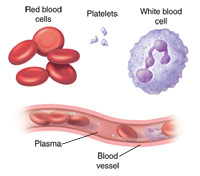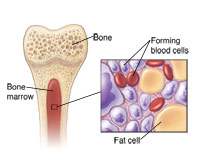WBC's
What Are White Blood Cells?
White blood cells are an important component of your blood system, which is also made up of red blood cells, platelets, and plasma.
Although your white blood cells account for only about 1% of your blood, their impact is significant. White blood cells, also called leukocytes, are essential for good health and protection against illness and disease.
Think of white blood cells as your immunity cells. In a sense, they are continually at war. They flow through your bloodstream to battle viruses, bacteria, and other foreign invaders that threaten your health. When your body is in distress and a particular area is under attack, white blood cells rush in to help destroy the harmful substance and prevent illness.
White blood cells are made inside the bone marrow and stored in your blood and lymphatic tissues. Because some white blood cells have a short lifespan of one to three days, your bone marrow is constantly making them.
Types of white blood cells
Among your white blood cells are:
- Monocytes. They have a longer lifespan than many white blood cells and help to break down bacteria.
- Lymphocytes. They create antibodies to defend against bacteria, viruses, and other potentially harmful invaders.
- Neutrophils. They kill and digest bacteria and fungi. They are the most numerous type of white blood cell and your first line of defense when infection strikes.
- Basophils. These small cells appear to sound an alarm when infectious agents invade your blood. They secrete chemicals such as histamine, a marker of allergic disease, that help control the body's immune response.
- Eosinophils. They attack and kill parasites, destroy cancer cells, and help with allergic responses.



Comments